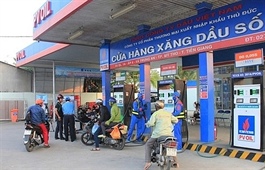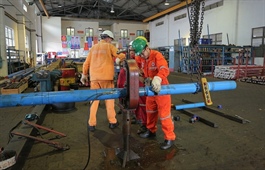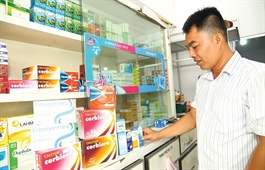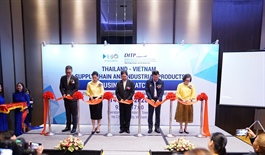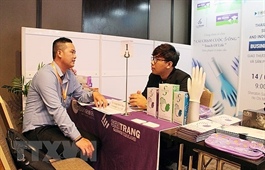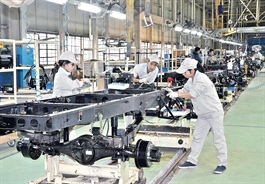Big pharma preparing for new phase under EVFTA
Big pharma preparing for new phase under EVFTA
The Ministry of Health has made advancements in regulations to facilitate multinational pharmaceutical corporations and to make them align with the EU-Vietnam Free Trade Agreement. However, some concerns remain. Nitin Kapoor, vice chairman of Pharma Group under the EuroCham in Vietnam, talked with VIR’s Bich Thuy what impact the changes had on its members, and their preparations to benefit from the promising chances after the transition.
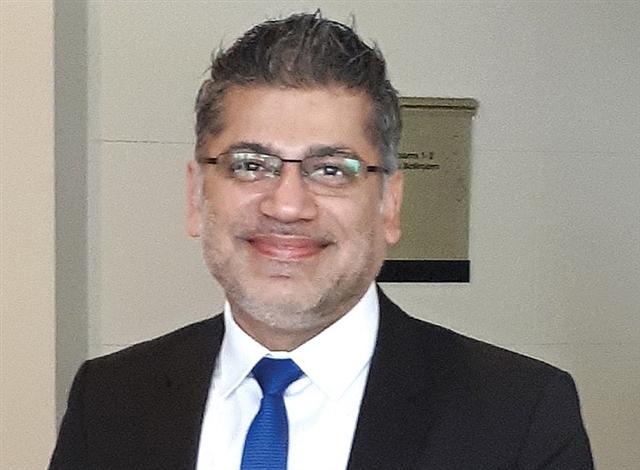
Nitin Kapoor, vice chairman of Pharma Group under the EuroCham in Vietnam
|
Vietnam’s Ministry of Health (MoH) has improved the legal framework in recent times. How have the changes facilitated operations of Pharma Group’s members?
The Vietnamese government has made good progress in shaping the healthcare agenda for the population. The best example here is the universal healthcare coverage.
I think the foundation is very good. We see opportunities to further accelerate and leapfrog, which can be achieved by making sure that the policies are consistent. Moreover, the environment is predictable and stable – an important ingredient to drive investment decisions always in the right direction.
There are some things which we are working on with the MoH, for example, with regards to Circular No.15/2019/TT-BYT dated July 2019. The circular allows price negotiation mechanisms that all member companies want to see implemented. Another project is to make sure the registrations are accelerated. Right now, it takes a little bit longer than in countries like the United States and within the European Union. The faster we can innovate these processes, the faster medicine is accessible to Vietnamese patients.
The price negotiation mechanism is already here, so I hope we can collectively do the same with the registration process. Also, we should make clinical trials even stronger, because that would attract a lot of foreign direct investment to the country. When pharmaceutical companies invest from many angles, all sectors like research and development, manufacturing, digital transformation, patient education, and support programmes can develop in a better way. So, we just need to make sure that investments are seen in a more holistic way, rather than always focusing merely on manufacturing.
How did Pharma Group’s member companies perform last year and in recent months, and what were their main challenges?
There were some challenges around the registration process, both in terms of new products and some renewals. So, there was a bit of a resource challenge sometimes, but that is understandable. We hope we can all find solutions to make sure that these registrations are done on time. Otherwise, patients will not be able to access many products.
I think the industry’s growth overall is pretty good, and it remains one of the leading growth markets for most companies. The innovative medicine ratio in Vietnam is a bit lower compared to some of the other Asian countries and the EU. But we hope as we start to accelerate the registrations of new medicine, the ratio of innovative medicine will increase, thus enabling patients to benefit from it.
Most importantly, what is required is collaboration between everyone. These challenges are very big, not only for Vietnam. No company, no association, and no department can solve this alone. So, we all must collectively work together for the common purpose and keep the dialogue open to make sure we discuss and overcome those barriers.
The other aspect is to make sure we can manage the supply chain effectively so that patients who are already suffering from diseases will not face any supply disruptions.
The landmark EU-Vietnam Free Trade Agreement is expected to open market entry for pharmaceutical firms from the EU when it comes into effect in August. What preparations have your members made to tap into the future opportunities?
Foreign-invested enterprises take a lot of effort and a lot of planning internally before they can execute their plans with the authorities. And as we go into the agreement, we will see that a lot of member companies are either working on the transition or have already transitioned. We will also see an uptake in the transition in the next few months which would mean the member companies will set up new warehouses and different operations compared to the previous model.
There are companies which currently accelerate clinical trials in Vietnam because the environment is quite favourable. And then there are companies which are considering manufacturing or technology transfer. Companies are in different stages of their strategy and their vision in Vietnam. But one thing is clear, they are all actively preparing for the promising new era of free trade between Vietnam and the EU.







